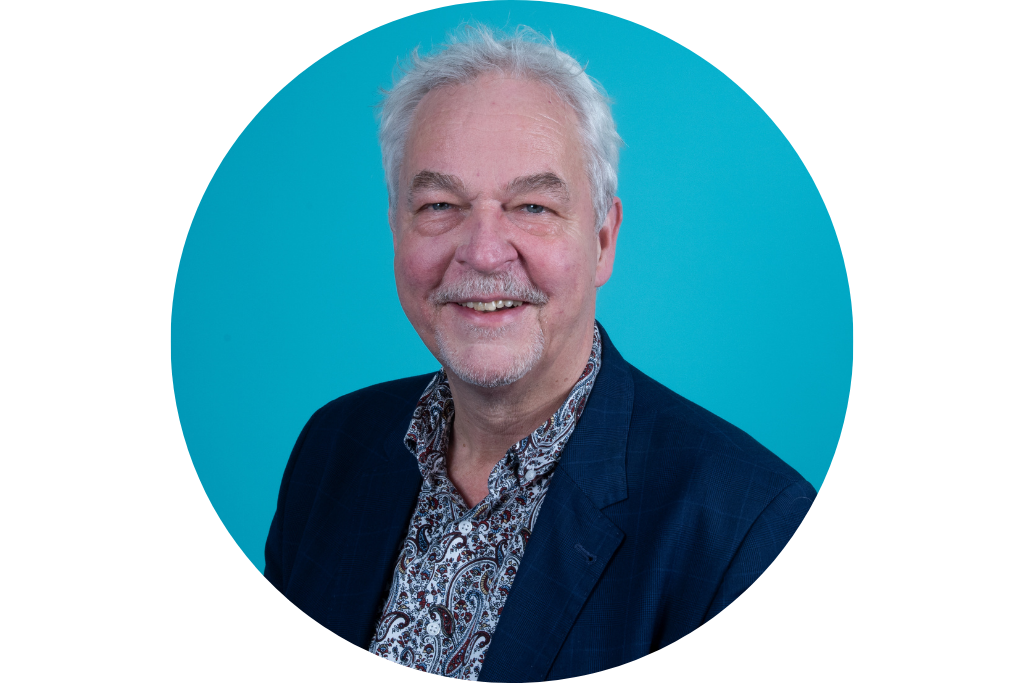
Professor of Smart Public Safety
‘Encourage the positive effects of digitalisation while also creating guardrails’
Ben Kokkeler, professor of Smart Public Safety
Is Ben Kokkeler concerned about the breakneck pace of global technological development? Absolutely. He is convinced that there are technologies out there that could be used as weapons. Still, as professor of Smart Public Safety, he believes in regulations over bans. “Technology can also help people make all kinds of incredible advancements – I’ve seen it with my own eyes. If we were to ban certain developments, we’d be depriving ourselves of opportunities. But there do need to be clear frameworks, which is what I’m working on with my research group.”
Kokkeler never really intended to become a security expert. But throughout his 35 years working in the public domain as a researcher, adviser and administrator, the dynamic between humans and technology has been the common thread – a relationship that is not without risk. Besides overseeing his research group at the Centre of Expertise for a Safe & Resilient Society, he also heads the Centre for Security and Digitalisation, an Apeldoorn-based network organisation with national impact. Kokkeler was appointed director there in mid-2022. “I’m interestedin technology, but my main focus is on the ethical and social issues that go with it,” he explains. “Early in my career, I did a lot of development work. That’s how I came to believe in the potential of technology to improve living standards: it can help us produce clean drinking water, generate our own energy and run financial payment systems. If you make those kinds of capabilities available in a democratic way, they drive progress. I think it’s important that we find ways to encourage the positive effects of digitalisation while also creating guardrails to safeguard our privacy and security.”
Strong relationships
Over the years, Kokkeler has explored digitalisation opportunities in all kinds of fields, from youth welfare to agriculture, and from museums to law enforcement.In 2016, when he became quartermaster at Avans University of Applied Sciences’ Centre of Expertise for a Safe & Resilient Society, he had already been involved in setting up research groups at four other universities of applied sciences as an advisor. “It’s the people with vocational training who make a difference in society. Those are the people I want to help, so that’s why I chose applied research,” he explains. “Our research not only contributes to better education for future generations of project and team leaders, but also strengthens the learning capabilities of all organisations involved. I’m a firm believer in strong relationships between education, government and business.”
Looking at the world around him, Kokkeler feels a great sense of urgency. Developments are happening at breakneck speed, and there’s a need for guidance on how to deal with all this progress. “We need to start seeing information as an essential resource for society, just like food and energy. That’s why we need to retain control over our personal data,” he believes. As an inspiring example, Kokkeler cites the citizens’ initiative Midden-BrabantGlas, in which his research group is involved: “The original goal was to build a fibre-optic network, but it now provides other community services as well, such as burglary and fire prevention. Thanks to this form of self-governance, citizens can build their own knowledge and maintain control over how technology is used.”
Ethical, legal and social consequences
Kokkeler’s research group aims to help society make informed decisions about digitalisation and security. The various ethics committees and ELSA labs he has helped to set up in Brabant support this mission: “ELSA labs bring together citizens, businesses, local governments, knowledge institutions and civil society organisations to jointly assess the impact of specific technological applications. They look at the ethical, legal and social consequences. How far can a municipality go in the use of camera surveillance? What are the pros and cons of police officers having their own TikTok accounts? How much information are government agencies allowed to share to combat poverty? I’m very proud of what our researchers, students and organisations have achieved in tackling these kinds of ethical issues together. We’re making a real-world difference.”

